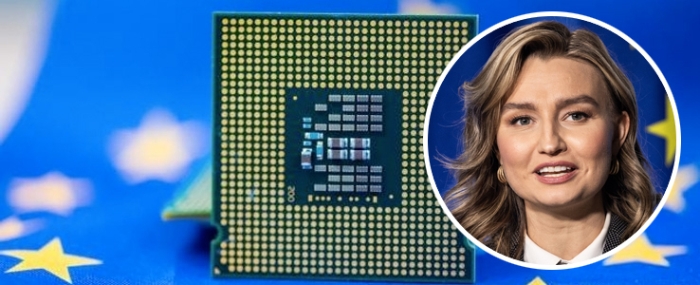
EU reaches deal to boost its semiconductor ecosystem
The European Council and the European Parliament have officially reached a provisional political agreement on the regulation to strengthen Europe's semiconductor ecosystem, better known as the Chips Act.
The deal is expected to create the conditions for the development of an industrial base that can double the EU’s global market share in semiconductors from 10% to at least 20% by 2030. However, that number has been contested.
"This agreement is of utmost importance for the green and digital transition while securing the EU’s resilience in turbulent times. The new rules represent a real revolution for Europe in the key sector of semiconductors. A swift implementation of today’s agreement will transform; our dependency into market leadership; our vulnerability into sovereignty; our expenditure into investment. The Chips act puts Europe in the first line of cutting-edge technologies which are essential for our green and digital transitions," says Ebba Busch, Swedish Minister for Energy, Business and Industry and Deputy Prime Minister in a press release.
The Commission proposed three main lines of action, or pillars, to achieve the Chips’ Act objectives. The first pillar is the “Chips for Europe Initiative”, to support large-scale technological capacity building. The second is a framework to ensure security of supply and resilience by attracting investment. The third is to set up a Monitoring and Crisis Response system to anticipate supply shortages and provide responses in case of crisis.
The Chips for Europe Initiative is expected to mobilise EUR 43 billion in public and private investments, with EUR 3,3 billion coming from the EU budget. These actions will be primarily implemented through a "Chips Joint Undertaking", a public-private partnership involving the Union, the member states and the private sector.
The EU Chips Act has previously received criticism for its focus on so-called "First-of-a-kind" facilities. The final compromise has now widened the scope of ‘First-of-a-kind’ facilities to include those producing equipment used in semiconductor manufacturing.




